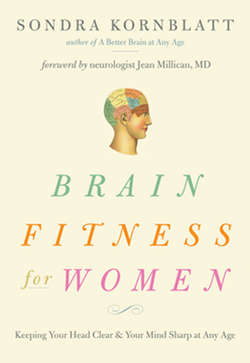Читать книгу Brain Fitness for Women - Sondra Kornblatt - Страница 34
На сайте Литреса книга снята с продажи.
Premenstrual Haze
ОглавлениеDuring the premenstrual days (the second part of your luteal phase) your corpus luteum scar realizes its egg is not going to be fertilized,74 and it crumbles. It stops producing estrogen and progesterone, and your body gets ready to shed the uterine lining it had created just in case the sperm and egg had a shindig.
Your body and brain do not like the loss of estrogen and progesterone, nor do they like having more estrogen than progesterone.75 Their reactions range from slight fatigue, tension, or emotional stress to more potent symptoms that keep you from functioning.
The drop in estrogen reduces the production of serotonin, the neurotransmitter that regulates mood, appetite, and sensory perception. Estrogen no longer recharges your brain, so you may feel not as sharp, socially adept, or emotionally steady. The drop of progesterone levels means the brain doesn't have nearly enough receptors for GABA, the soothing brain chemical.76 So the GABA is essentially wasted.
To add fuel to the fire, women have more prostaglandins during this time. Prostaglandins are fatty acids that, on the good side, stimulate the contraction of smooth muscle and the uterus. On the not-so-good side, in the premenstrual week, they cause inflammation, sensitize the spinal nerves to pain, increase bloating, and congregate in the brain, breasts, and reproductive tract, making all three hurt.77 Pain relievers such as Advil (ibuprofen), Aleve (naproxen), and Midol all help at this time because they are anti-inflammatory and/or prostaglandin blockers.
Your poor limbic (primitive) brain also goes into withdrawal. It no longer connects as well to the cerebral cortex, and you have less access to your skills for handling strong emotional reactions.
Your brain can also go “on strike” during these days. Bruce McEwen, renowned professor of neuroscience at Rockefeller University, says all these hormone shifts overload your brain's self-regulatory systems (called allostatic loading) and overcome your brain's capacity to compensate.78
Your brain also gets triggered to respond to more food cues, which may not be all bad.79Your brain might want you to consume chocolate, which has magnesium salts, a mineral that can help with depression.82
